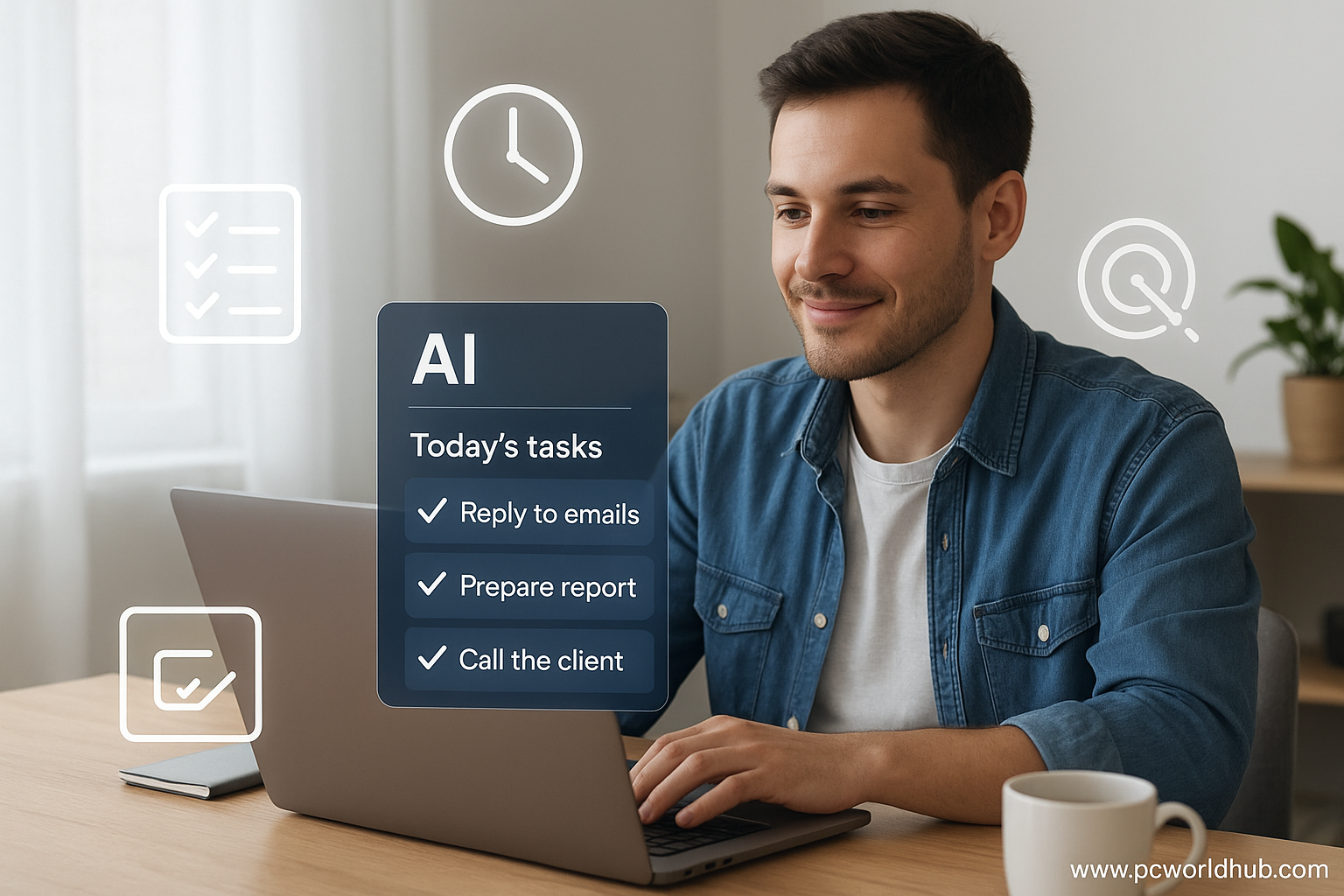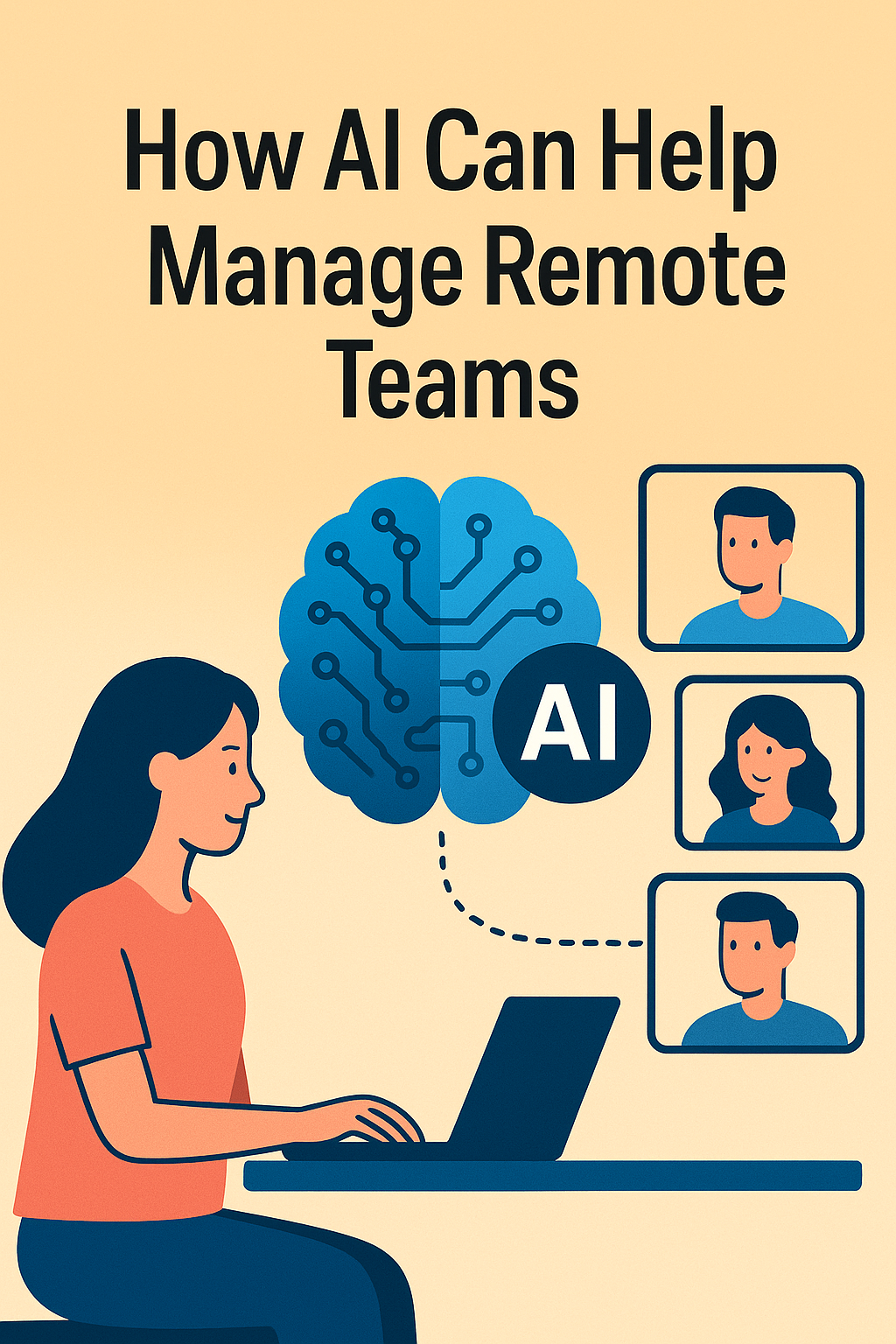How AI Can Help You Beat Procrastination
Procrastination is one of the biggest barriers to productivity. Even with the best intentions, many people delay important tasks, often choosing short-term comfort over long-term success. Artificial Intelligence (AI) tools are now offering practical ways to break this cycle.
By understanding behavior patterns, creating personalized reminders, and automating repetitive work, AI can help individuals stay on track and achieve more.
In this article, we’ll explore how AI can help you beat procrastination once and for all.
Why Do We Procrastinate?
Before diving into AI solutions, it’s important to understand why procrastination happens. Common reasons include:
- Lack of motivation: The task feels too difficult or boring.
- Fear of failure: Anxiety about not performing well leads to avoidance.
- Overwhelm: Too many tasks can paralyze decision-making.
- Poor time management: Difficulty prioritizing or estimating time.
AI tools are designed to tackle these exact challenges by reducing mental effort and providing structure.
1. Smart Task Prioritization
AI-powered apps like Motion or Trevor AI analyze your to-do list and schedule tasks in the most effective order. Instead of feeling overwhelmed by dozens of items, you’re guided toward completing the most impactful tasks first.
This removes the common excuse of “I don’t know where to start.”
2. Personalized Reminders
Unlike generic alarms, AI assistants learn your behavior. For example, if you usually delay replying to emails until late at night, the assistant can nudge you earlier in the day with reminders that fit your work rhythm.
This adaptive approach makes reminders more effective than static alerts.
3. Breaking Large Tasks Into Smaller Steps
Big projects often feel intimidating, leading to procrastination. AI planning apps can break complex goals into smaller, manageable steps. For example:
- “Write a report” becomes “Outline sections → Draft introduction → Add references.”
This structure makes tasks less overwhelming and encourages consistent progress.
4. Blocking Distractions
AI productivity apps like Freedom or RescueTime detect when you’re spending too much time on distractions like social media. They can automatically block these sites during work hours or send gentle alerts reminding you to refocus.
By reducing temptation, AI creates an environment where procrastination is harder to justify.
5. Gamification of Work
Some AI tools turn productivity into a game. Apps like Habitica reward you with points and achievements when you complete tasks. This playful approach boosts motivation and makes routine work more enjoyable.
6. AI-Powered Accountability Partners
AI chatbots and assistants can act as accountability partners. For example, an AI bot can check in throughout the day, ask about progress, and encourage you to keep going. This creates a sense of responsibility, similar to having a coach or mentor.
7. Automating Repetitive Work
Many people procrastinate because tasks feel tedious. AI can automate repetitive work such as:
- Sorting emails.
- Entering data into spreadsheets.
- Scheduling appointments.
With less “boring work” on your plate, you’re more likely to focus on meaningful tasks.
8. Tracking Progress in Real Time
AI tools provide visual dashboards showing your daily and weekly progress. Seeing your achievements builds momentum, which makes you less likely to procrastinate.
Progress tracking also helps identify problem areas where procrastination happens most often.
9. Boosting Focus with AI Music and Sound
AI-generated focus music apps like Brain.fm use neuroscience-based sound patterns to improve concentration. By creating an environment that reduces distractions, these tools help you get into a productive flow state faster.
10. Personalized Motivation Boosts
Some AI assistants go beyond reminders and provide motivational messages based on your mood and habits. They might remind you of long-term goals, celebrate small wins, or suggest taking a short break to reset your energy.
The Psychology of AI Support
AI helps beat procrastination not just by managing tasks but by influencing psychology. Small nudges, clear structure, and reduced decision fatigue make it easier to take action rather than delay.
When you combine human discipline with AI guidance, procrastination becomes less of a struggle.
Final Thoughts
Procrastination is a natural human tendency, but it doesn’t have to control your productivity. By using AI tools to prioritize tasks, block distractions, and provide personalized motivation, you can take back control of your time.
AI won’t do the work for you—but it will make starting and finishing tasks much easier. The result? Less stress, more progress, and greater confidence in your ability to achieve your goals.




Post Comment